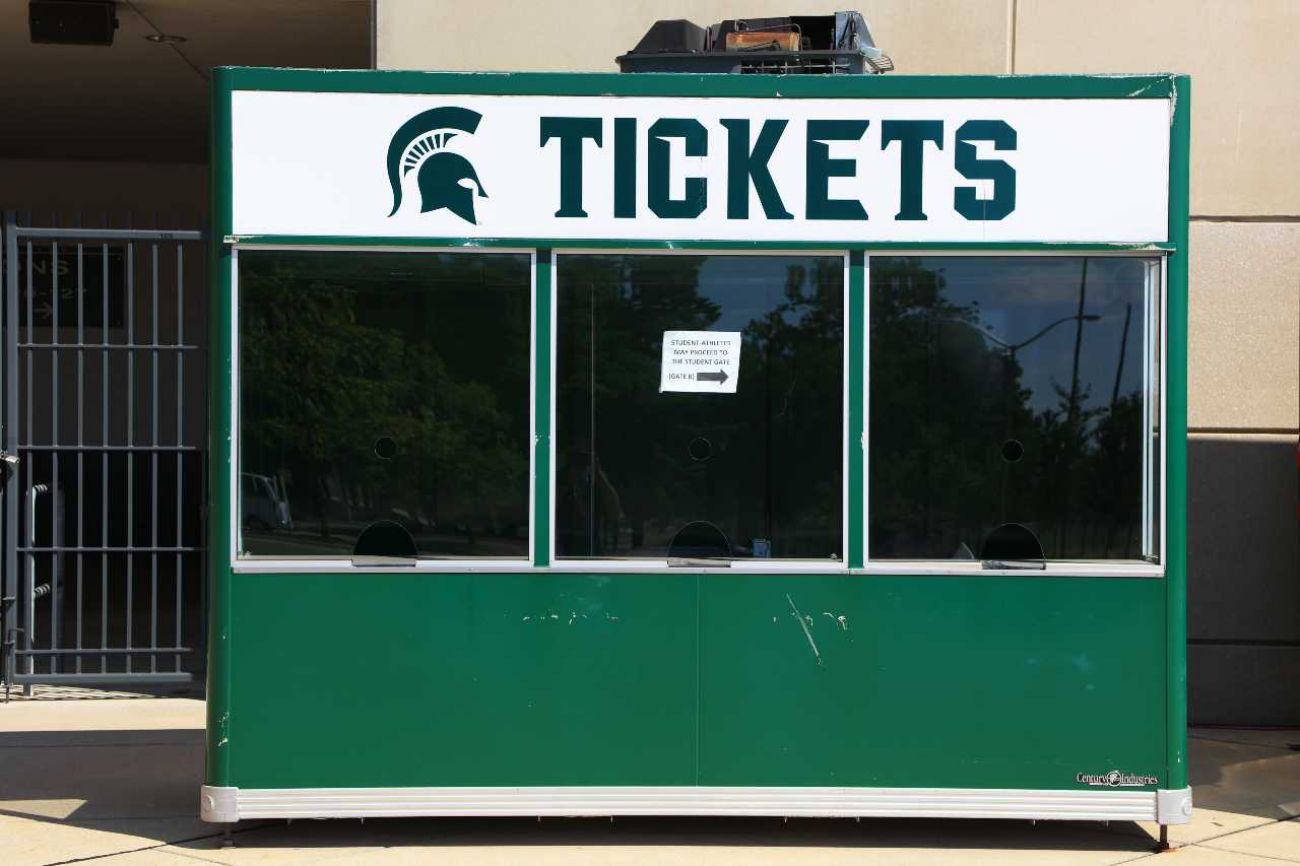Cheer the MSU Spartans! At home. Preferably alone. Welcome to COVID game day

Empty stands. No tailgating. And if you’re watching the game on TV, please don’t do it with a bunch of friends or in a bar.
Football may be coming back to East Lansing, but what fans normally think of as Game Day will have to wait.
With plans already in place to have no fans in the stands for Big Ten football games because of the coronavirus pandemic, Michigan State University President Samuel Stanley did his best Tuesday to discourage fans from crowding together to watch the Oct. 24 opening game against Rutgers University on TV.
- Michigan re-orders schools to disclose COVID cases after Supreme Court ruling
- COVID outbreaks spiking in Michigan K-12 schools and colleges
- The latest: Michigan coronavirus unemployment, map, curve, updated COVID-19 news
- Dashboard: Michigan coronavirus testing numbers, trends, COVID-19 data
“We encourage all Spartan fans to watch the upcoming football season from home in a safe manner,” Stanley wrote in an email to students and staff. “Do not gather in crowds or host large watch parties. The gathering of fans, indoors or outdoors, only gives the COVID-19 virus the chance to spread.”
A similar letter will be sent to alumni of MSU, which has the most confirmed coronavirus cases among Michigan colleges.
There will be no tailgating allowed on campus, something that is usually common both in parking lots around Spartan Stadium and in the grass around academic buildings. Open alcohol won’t be allowed, either.
The regulations are in place for at least the opening game scheduled to kick off at noon Oct. 24. Plans could change before the Spartans’ other three home games, the first of which is Nov. 14.
“Like everything related to COVID, [there is] constant evolution,” MSU spokesperson Emily Guerrant told Bridge Michigan on Wednesday.
The University of Michigan hasn’t finalized its plans for home football game days, but U-M spokesperson Rick Fitzgerald said it would likely take a “similar approach” as MSU. U-M’s first home game is Oct. 31, against Michigan State.
Western Michigan University, Central Michigan University and Eastern Michigan University, all members of the Mid-American Conference, will also play without fans or tailgating this year, with the season beginning Nov. 4.
MSU and Ingham County health officials have reasons to be concerned about the potential for football Saturdays to turn into super-spreader events. In less than two weeks after Gov. Gretchen Whitmer allowed bars and restaurant dining rooms to reopen June 8, there were 144 confirmed cases of coronavirus traced to one East Lansing college bar. In late August, MSU shuttered its dorms shortly before the fall semester began and encouraged students to stay home and take classes online, but more than 30,000 students live off-campus, many of whom are locked in to leases for the school year.
When those students returned to East Lansing, COVID-19 cases skyrocketed, with many outbreaks traced to off-campus parties. The Ingham County Health Department ordered quarantines for residents of dozens of fraternities, sororities and off-campus student houses.
MSU has more coronavirus cases among its students and staff than any other college campus in the state, with 1,531 confirmed cases in new or ongoing outbreaks, according to a state report released Monday.
Ingham Health Director Linda Vail told Bridge she is concerned that football Saturdays could be the next big event that could spread the potentially deadly virus.
Closing Spartan Stadium and eliminating tailgating may just push revelers into indoor settings for watch parties.
“I love college football, but we’re in a pandemic,” Vail said. “You can’t say ‘Let’s all get together and have a watch party and celebrate.’ You just can’t.”
Vail urged students and fans to avoid bars and restaurants for game-watching, also. Bars and restaurants can operate at 50 percent of capacity or up to 125 people.
Young people tend to not suffer as serious health consequences from COVID-19, but they can spread it to more vulnerable populations.
Players and football staff members will be given two tickets apiece for the Oct. 24 game, MSU’s Guerrant said. Between Michigan State and Rutgers, that would mean there will be a maximum of about 600 people in the stands in a stadium with a capacity of about 75,000.
MSU President Stanley, a doctor who has studied infectious disease, wrote in his letter that he plans to watch the game at home, and encouraged others to do the same.
“Let’s all do our part to ensure we can continue to cheer on the team safely and responsibly,” Stanley wrote.
Michigan Education Watch
Michigan Education Watch is made possible by generous financial support from:
Subscribe to Michigan Education Watch
See what new members are saying about why they donated to Bridge Michigan:
- “In order for this information to be accurate and unbiased it must be underwritten by its readers, not by special interests.” - Larry S.
- “Not many other media sources report on the topics Bridge does.” - Susan B.
- “Your journalism is outstanding and rare these days.” - Mark S.
If you want to ensure the future of nonpartisan, nonprofit Michigan journalism, please become a member today. You, too, will be asked why you donated and maybe we'll feature your quote next time!






